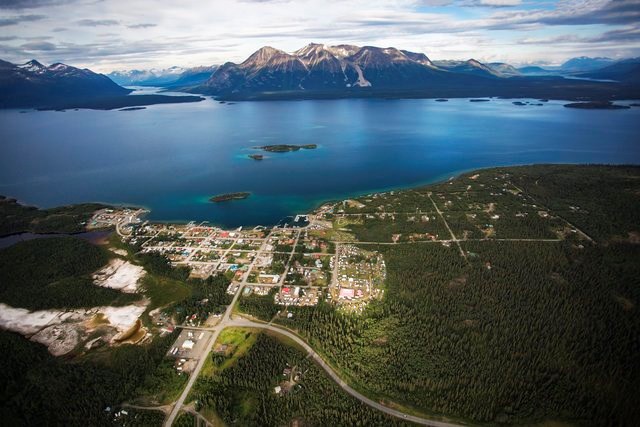Atlin is a remote community with one of the most interesting commutes in all of B.C. as the only way to access the town by vehicle is through Yukon.
As a result of its location and the intent of regional health officials to provide COVID-19 vaccines, Northern Health is partnering with the territory’s government to set up an immunization clinic and distribute 200 doses to those most at risk.
Together with the First Nations Health Authority as well, the Moderna vaccine will be shipped from Whitehorse next week.
Elders, seniors, health-care workers and those medically vulnerable residing in Atlin and other B.C./Yukon border communities will be given first priority, per the B.C. government’s COVID-19 immunization strategy.
“Eligible Atlin residents in these groups will be contacted directly and offered an appointment,” reads a statement from Northern Health this afternoon (Jan. 22).
“Eligible residents without a phone can contact the Atlin Health Center or the Taku River Tlingit First Nation health team directly beginning on Monday, January 25, 2021.”
The authority explains the logistics of immunizations requires ‘careful planning and coordination’ because of Atlin’s remote location in addition to handling the vaccine supply with care.
The clinic is set to open for those that currently qualify for the vaccine on Jan. 27 and 28.
Earlier today, Provincial Health Officer Dr. Bonnie Henry said age will be the determining factor of B.C.’s vaccine rollout for the general public.
In four phases, and barring any shortages or delays, vaccination efforts will commence in April, requiring 7.4 million doses to be administered across the province by the end of September when the preceding doses are taking into account.
The third phase will start with those 75 to 79 years old and then carry on in descending five-year age brackets.
The province plans to vaccinate everyone who is 60 to 79 years old, as well as 16- to 69-year-olds that are considered extremely vulnerable, by the end of June.
People considered extremely vulnerable include those with specific cancers, such as leukemia or lymphoma; people with severe respiratory issues; people on immunosuppression therapies; and adults on dialysis or with chronic kidney disease.
The remaining age groups — 18 to 59 years old — will then commence vaccinations in July in descending five-year age brackets, save for the final 18- to 24-year-old bracket.
Those under 18 are currently not eligible for vaccination.
- with files from Tyler Orton, Business In Vancouver





